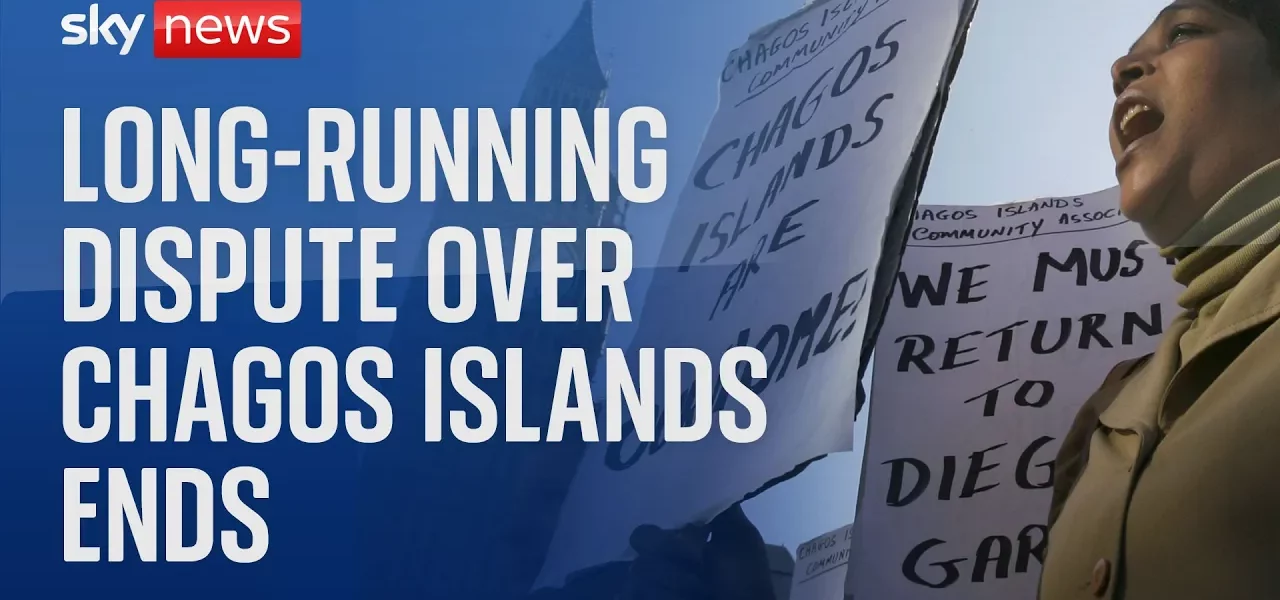The Chagos Islands Controversy: A Historical Overview and Current Implications

The Chagos Islands, with their pristine white sands and picturesque landscapes, have been at the center of a heated controversy for over fifty years. This article delves into the complexities of the ongoing disputes surrounding Britain’s control of these islands, the plight of the Chagossians, and the geopolitical ramifications of recent developments.
Introduction
The Chagos Islands, located in the Indian Ocean, are a territory of the British Indian Ocean Territory (BIOT). Since the 1960s, these islands have been embroiled in a contentious dispute, primarily due to their strategic military significance and the forced removal of the indigenous Chagossian people. This article aims to provide an in-depth analysis of the historical context, the ongoing struggles of the Chagossians, and the recent agreements regarding sovereignty and military presence in the region.
The Historical Background of the Chagos Islands
The Chagos Islands were under British control as part of the BIOT, established in 1965. The islands, particularly Diego Garcia, have been crucial for military operations, housing a significant US military base. This section will explore:
Colonization and Displacement
In the 1960s, the British government forcibly removed the Chagossians from their homes to make way for the US military base. This displacement led to a lasting impact on the Chagossian community, who were relocated primarily to the UK and Mauritius.
Legal Battles for Return
Chagossians have engaged in numerous legal battles to reclaim their right to return to their homeland. These struggles reflect broader themes of colonization and the right to self-determination:
- Initial legal actions in the 1970s and 1980s
- Challenges in international courts
- Recent developments and ongoing litigation
Recent Developments: The Deal with Mauritius
In a significant turn of events, the UK has agreed to hand control of the outlying islands back to Mauritius. This section discusses the implications of this agreement:
Understanding the Agreement
The deal allows Mauritius to regain sovereignty over the islands while maintaining the military base under a 99-year lease:
- Return of sovereignty to Mauritius
- Retention of the US military presence
- Concerns from conservatives regarding the implications of the deal
Chagossians’ Reactions
The reactions from the Chagossian community have been predominantly negative, as many feel excluded from negotiations that directly affect their lives:
- Feelings of betrayal by the negotiating parties
- Concerns over the lack of consultation with the Chagossian people
- Expressions of longing for their homeland
Geopolitical Implications
The strategic importance of the Chagos Islands extends beyond military presence. This section examines the geopolitical landscape, including:
Regional Interests and Future Prospects
As the control of the islands shifts, other nations, including China, may seek to establish a permanent military presence in the Indian Ocean. This development raises questions about:
- The role of superpowers in regional stability
- The potential for increased tensions
- Future negotiations involving the Chagossians and their rights
Conclusion
The situation surrounding the Chagos Islands continues to evolve, reflecting the complex interplay of history, politics, and human rights. As negotiations progress, it is crucial for the voices of the Chagossians to be heard and considered. The future of the islands and their inhabitants hangs in the balance, and a collective effort is needed to address historical injustices. We invite our readers to stay informed about this ongoing issue and engage in discussions about colonialism and self-determination.
“`




